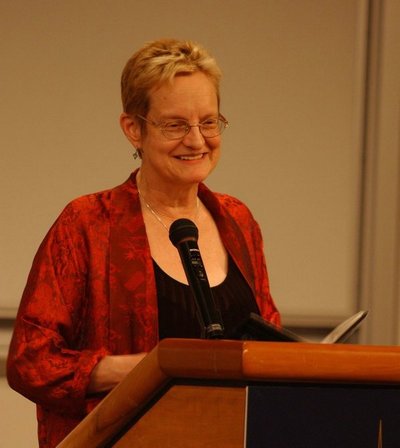December 7, 2006
English professor and poet awarded $50,000 fellowship
Heather McHugh, a poet and English professor at the UW, has been awarded $50,000 in the inaugural round of United States Artists Fellowships.
This award represents a considerable increase over many other individual grants that artists can receive, and the initial list includes “some of the most distinguished contemporary American artists,” said Gary Handwerk, chairman of the UW English department.
McHugh, who is reported to be traveling, could not be reached for comment.
Fifty awards were announced Dec. 4 in New York. United States Artists Fellowships was launched in 2005 with $20 million in seed money from a coalition of foundations – Ford, Rockefeller, Prudential and Rasmuson – plus individual donors. The group plans to make 50 awards annually, aiming to help American artists, who for years have faced dwindling public support. According to information at USA’s Web site (www.unitedstatesartists.org), the grants are meant to be “‘research and development funding’ or venture capital for the imagination.” Award categories include dance, literature, music, media arts, performing arts, architecture, design and fashion, crafts and traditional arts and the visual arts.
McHugh joined the UW faculty in 1984. Her books of poetry include Eyeshot (2003), which was a finalist for a Pulitzer Prize, and The Father of the Predicaments (1999). Another book, Hinge & Sign: Poems 1968-1993 (1994), won the Boston Book Review’s Bingham Poetry Prize and the Pollack-Harvard Review Prize. It was also a finalist for the National Book Award and named a “notable Book of the Year” by The New York Times Book Review.
McHugh is also known for her translations, including “Glottal Stop: 101 Poems of Paul Celan,” which she translated from the German with her husband, Nikolai Popov.
McHugh’s other awards include two grants from the National Endowment for the Arts, the Griffin Prize for Poetry and a Guggenheim Fellowship. At the UW, she’s Milliman Distinguished Writer-in-Residence.
McHugh’s “command of language leaves one in awe,” said Handwerk. “Even in ordinary conversation, it’s evident her command of language is extraordinary. She can say things with remarkable precision and grace. ”

